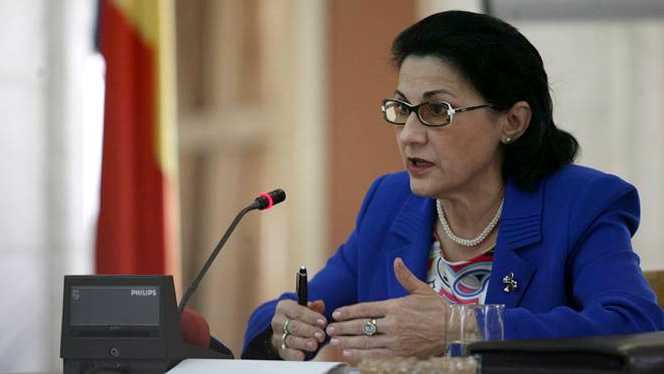The Romanian Ministry of National Education is doing everything it can to reverse earlier statements from education minister Ecaterina Andronescu that caused a national outcry. In an interview with Digi24, commenting on the matter of children with special needs, she said she would like to separate them from normal children and have specialized teachers work with them. Her statement caused an uproar in the whole country, and the European Centre for the Rights of Children with Disabilities (ECRCD) has filed a complaint with the National Council for Combating Discrimination against the minister.

Shortly after the interview with Andronescu was aired, the president of ECRCD, Maria Madalina Turza, reacted on her Facebook page, saying the minister is bringing back segregation to Romania. The problem with the minister’s initiative to separate the children with special needs is that “it strengthens the stigma and prejudice of the community of people with disabilities in our country,” Turza said.
In a press release the ECRCD highlights the topical problem the Ministry of National Education should focus on instead of segregating children with disabilities. In Romania, there are 70,000 children with special needs, of whom almost 50% (29,433) remain isolated in special schools. To date, there are only 1,375 specialized teachers in the whole country, so the problem is that even children with special needs integrated into normal schools lack the necessary support, because this means only one specialized teacher per 150 children with disabilities, according to the press release.
Responding to the uproar coming from the parents of these children and the group protecting their rights, as well as the educators, the Ministry of National Education has issued a clarification statement on their website “underpinning the Ministry’s position on this matter,” which we can understand as a step back from the earlier statement of Mrs. Andronescu. The document highlights the Ministry’s commitment to the national strategy called “A society without barriers for people with disabilities” 2016–2020, which means no person with disabilities will be discriminated against or marginalized; instead they will be supported in their decisions. The education minister would like to achieve the integration of children with special needs by increasing the number of specialized professionals, not by creating separate classes for these children, the statement highlights.